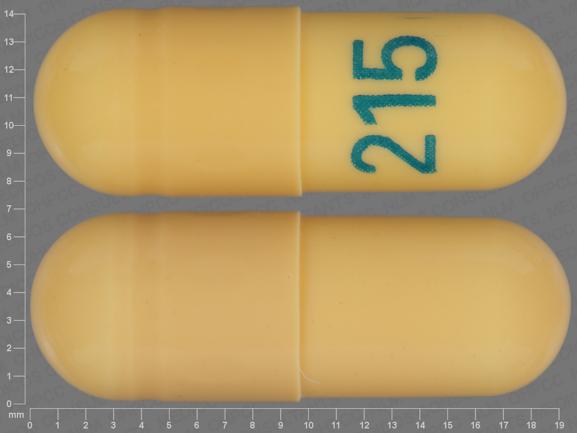Extended-release (ER) gabapentin (Serada, Depomed), an investigational nonhormonal drug, improves sleep and reduces hot flashes in menopausal women, according to a phase 3 clinical trial known as BREEZE 3.
The results were presented here at the North American Menopause Society (NAMS) 23rd Annual Meeting.
“Right now, if women don’t want to take hormones, and if over-the-counter products, acupuncture, and lifestyle changes do not work, we don’t have any FDA [US Food and Drug Administration] approved therapies,” said lead researcher JoAnn Pinkerton, MD, who is professor of obstetrics and gynecology at the University of Virginia in Charlottesville and past president of NAMS.
A New Drug Application was submitted for gabapentin ER in July. If approved, the drug will be the first nonhormonal, nonantidepressant treatment for the bothersome symptoms of menopause, Dr. Pinkerton explained.
BREEZE 3 looked at the effect of gabapentin ER on hot flashes and on sleep. Data were presented in 2 different abstracts by 2 different investigators.
Gabapentin is used to control epileptic seizures and restless leg syndrome, and recently was approved by the FDA for the treatment of postherpetic neuralgia.
The ER formulation was developed to be taken twice a day instead of 3 times a day, which significantly decreases the adverse-effect profile, Dr. Pinkerton said.
“With the short-acting version, 20% of patients were somnolent or dizzy. In this trial, with the extended-release formulation, the rate of somnolence or dizziness started at 11% and went down to 3% very quickly. It was very well tolerated and very few people discontinued treatment because of those symptoms,” she said. At the end of 6 months, people felt significantly better, she added.

Gabapentin Improves Insomnia
In the sleep part of BREEZE 3, gabapentin was found to have a positive impact on sleep disturbance. Researchers assessed the impact of gabapentin using 2 measures of sleep: the Insomnia Severity Index (ISI) score and the daily sleep interference (S/I) score.
At baseline, the mean ISI scores were 17.54 in the gabapentin group and 17.33 in the placebo group, indicating moderate insomnia, and the mean S/I scores were 7.3 and 7.4, respectively, indicating a moderate to severe sleep disturbance.
After 12 weeks, there was a clinically meaningful reduction in ISI score in the gabapentin group, compared with the placebo group (8.7 vs 6.3; P = .0044), and in S/I score (3.6 vs 2.8; P = .0056). Reductions out to week 24 were maintained in the ISI score (8.6 vs 6.2; P = .0068) and in the S/I score (3.9 vs 3.0; P = .0084).
“I was happy that sleep was looked at in an objective way. If you ask many women, their hot flushes at night really bother them. If they can’t sleep because of hot flushes, they basically cannot function during the day, so we need to look at sleep separately,” said Risa Kagan, MD, from East Bay Physicians Medical Group, Alta Bates Summit Medical Center, in Berkeley, and clinical professor in the Department of Obstetrics, Gynecology, and Reproductive Sciences at the University of California, San Francisco, who led the sleep part of BREEZE 3.
Dr. Kagan added that, although it is fine to look at all of the data objectively, in the end, the aim is to help women transition through the menopause. “This was not just a placebo effect, this was actually a statistically significant improvement in sleep over placebo,” she explained.
http://www.medscape.com/viewarticle/772249

Can Gabapentin Improve Menopausal Hot Flashes ?
Gabapentin has been studied as a potential treatment for menopausal hot flashes, and some research suggests that it may be effective for reducing their frequency and severity. However, gabapentin is not specifically approved by regulatory agencies like the FDA for this use, so it would be considered an off-label use.
The exact mechanisms by which gabapentin may help reduce hot flashes are not fully understood. However, it’s believed to affect neurotransmitters involved in the regulation of body temperature and may have a stabilizing effect on the nervous system.
Several clinical trials have investigated the use of gabapentin for managing menopausal symptoms, including hot flashes. While some studies have shown promising results, others have been inconclusive or showed only modest benefits.
If you’re experiencing bothersome hot flashes during menopause, it’s essential to discuss your symptoms with a healthcare provider. They can help determine the most appropriate treatment options for you, which may include hormone therapy, non-hormonal medications, lifestyle modifications, or alternative therapies.
If gabapentin is considered as a treatment option, your doctor can provide guidance on dosing, potential side effects, and monitoring to ensure its safety and effectiveness for your specific situation.
As with any medication, it’s essential to weigh the potential benefits and risks of gabapentin for managing menopausal hot flashes and make an informed decision in consultation with your healthcare provider.
